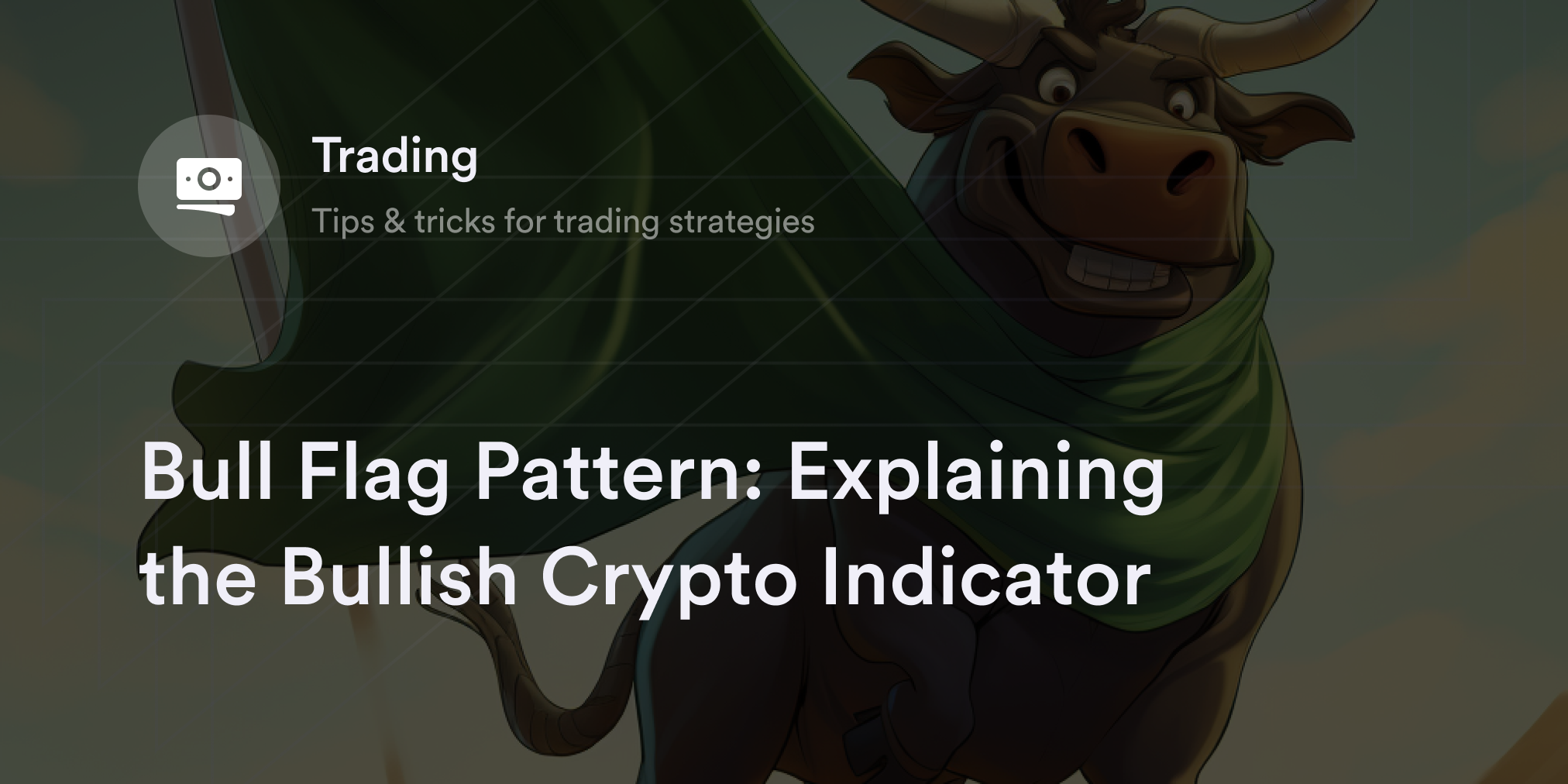


Crypto traders turn to chart patterns and probabilities to better predict price movements, identify opportunities, and set up their ideal trades. However, despite all the technical tools, onchain analytics, and fundamental metrics that provide a view of the crypto market's direction, twists and turns are an inevitable part of the crypto trading journey.
In other words, no matter how well traders attempt to review the most likely scenarios, there's always a chance for something to come out of left field and derail the digital assets market.
When crypto black swan events occur, forgetting about carefully prepared plans and falling prey to panic selling is often easy. Nevertheless, there are ways for traders to react to these scenarios without losing their cool.
In this guide, we'll explain what black swan events are and ways to prepare for these situations when trading digital assets.
What is a black swan event in crypto? Black swan event meaning
Popularized by financial analyst Nassim Nicholas Taleb, black swan events are infrequent and unpredictable situations that greatly influence market behavior. Because Taleb was involved in the options market (his 2007 book The Black Swan came out before Bitcoin's 2009 launch), there's a deep connection between “black swan” and the stock market. However, as the concept spread among economists and traders, the term "black swan" is now a part of the global finance lexicon.
A "crypto black swan" refers to any significant event within the digital assets market that has a massive impact on cryptocurrency prices. While some are crypto-specific (e.g., a major hack on a blockchain or a crypto exchange bankruptcy), macroeconomic news that affects the crypto market qualifies as a black swan (e.g., the COVID-19 pandemic).
Taleb identified three key features all black swan events share:
Rarity: Like the uncommon dark-feathered birds they’re named after, black swans are out of the ordinary. In many cases, they’re so unusual they set a new precedent and become milestones in the history of financial markets.
Extreme impact: Once a black swan event happens, every market participant knows it. Markets react swiftly and violently to the breaking news as traders begin to grasp the event's magnitude.
Retrospective predictability: In the middle of a black swan event, nobody has time to reflect on the why, what, or how it happened. However, as economists look back on a black swan event, they recognize the causes that made this occurrence inevitable.
Examples of black swan events in crypto history
Despite the cryptocurrency market's relatively short history, multiple culture-defining black swan events have occurred. They’ve often triggered volatile price fluctuations and inspired web3 developers to shift their focus to better preserve decentralization and security.
Mt. Gox hack
The Tokyo-based centralized exchange (CEX) once processed 70% of Bitcoin transactions, so when hackers stole 750,000 BTC from Mt. Gox in 2014, it severely affected Bitcoin's supply and the early crypto market's reputation for safety. The impact of the Mt. Gox heist led future CEXs to implement new safeguards like cold storage and policies like know-your-customer (KYC) identification to bolster transparency and security.
Ethereum DAO hack
Short for "decentralized autonomous organization," the DAO on Ethereum (ETH) was the first experiment in a community-owned and intermediary-free blockchain-based treasury. Soon after the DAO launched in 2016, hackers discovered a vulnerability in this protocol's code and stole roughly 31 million ETH (around $14 billion in today’s prices). To address this major security breach and restore confidence in the Ethereum ecosystem, ETH developers created a new blockchain (aka a "hard fork") to reimburse affected DAO members.
China's crypto mining ban
In 2021, Beijing announced a strict ban on crypto transactions and mining activity for virtual assets using the Proof-of-Work (PoW) algorithm. The crackdown on cryptocurrency mining and trading was part of the reason Bitcoin plummeted from more than $60,000 to approximately $30,000. It also triggered a temporary dip in Bitcoin's hashrate from 180 M TH/s to 80 M TH/s.
TerraUSD collapse
In 2021, Terraform Labs' experimental TerraUSD (UST) stablecoin lost its 1:1 ratio with the U.S. dollar, triggering intense panic selling and increased regulatory scrutiny toward algorithmic stablecoins. In a matter of days, the Terra ecosystem drained a massive $45 billion from the cryptocurrency market.
How do black swan market events affect crypto?
Because black swan events represent unexpected and significant shifts in the cryptocurrency market, they typically result in increased trading activity (aka volume) and a change in the overall sentiment. Often, black swan events are negative or unprecedented news, which usually causes traders to "de-risk" by panic selling their portfolios and waiting for greater clarity.
Many prior black swan events—such as the Mt. Gox hack and the TerraUSD collapse—preceded major "bearish" downturns in the crypto market and multi-year low prices (aka crypto winters). It's also possible for black swan events to draw more regulatory attention to the crypto market, which impacts the future growth and mass adoption of virtual assets.
Ways to manage black swan events
By their nature, black swan events are unpredictable, but crypto traders have ways to help protect against price volatility when these circumstances arise. Following a few risk management tactics may help traders limit these volatile events' impact on their portfolios.
Diversification
Instead of concentrating capital in a single virtual currency, traders with diversified portfolios spread their funds between multiple assets to reduce risk exposure. If a black swan event negatively affects one cryptocurrency, others in the portfolio sometimes fare better than others, helping to reduce or offset potential losses.
Stop-loss orders
A stop-loss order automatically sells a cryptocurrency at a predetermined market price, serving as a protective measure to limit potential losses. If the crypto market suddenly falls after a black swan event, these stop-loss orders may ensure traders get out of their positions at their preferred rates rather than suffering further price declines.
Shorting or short derivatives
When traders enter short positions, they gain money as a cryptocurrency drops in value. Whether crypto traders short a cryptocurrency with loans from an exchange or use derivative contracts like puts or short perpetuals, these methods provide a way to profit from increased volatility following a black swan event.
Hedging
Traders who hold (aka HODL) cryptocurrency through the uncertainty of black swan events often use derivatives like options, futures, and perpetuals to offset temporary losses (aka hedging). Although a crypto trader's "hodl" portfolio decreases in value, they potentially gain from their short derivative contracts and reduce their cryptocurrencies' total cost (aka cost basis).
Self custody
Self-custodial crypto wallets mitigate a trader’s exposure to black swan events associated with compromised counterparties. Since self-custodial wallets give traders the essential private key over their cryptocurrencies, they enjoy direct ownership rights over their virtual assets. By contrast, traders who leave cryptocurrencies on a CEX’s custodial wallet rely on the exchange’s security standards—or lack thereof. If an exchange suffers a hack (e.g., Mt. Gox) or falls into bankruptcy (e.g., FTX), traders who fail to move their crypto to a self-custodial wallet risk losing all their funds.
Diversify with crypto perps on dYdX Chain
Eligible traders looking to diversify or hedge their portfolios with derivatives enjoy access to dozens of crypto perpetuals on dYdX Chain. The decentralized Cosmos-based blockchain offers qualified traders deep liquidity for Bitcoin and altcoin perpetual swaps, as well as advanced features like slippage tolerance controls and up to 20x leverage.
Find out more about all the features and products available on dYdX Chain by visiting the official dYdX blog. Also, check out dYdX Academy, our in-house education hub, for more guides on crypto trading and blockchain technology.
Start trading on dYdX today.
Disclosures
The content of this article (the “Article”) is provided for general informational purposes only. Reference to any specific strategy, technique, product, service, or entity does not constitute an endorsement or recommendation by dYdX Trading Inc., or any affiliate, agent, or representative thereof (“dYdX”). Use of strategies, techniques, products or services referenced in this Article may involve material risks, including the risk of financial losses arising from the volatility, operational loss, or nonconsensual liquidation of digital assets. The content of this Article does not constitute, and should not be considered, construed, or relied upon as, financial advice, legal advice, tax advice, investment advice, or advice of any other nature; and the content of this Article is not an offer, solicitation or call to action to make any investment, or purchase any crypto asset, of any kind. dYdX makes no representation, assurance or guarantee as to the accuracy, completeness, timeliness, suitability, or validity of any information in this Article or any third-party website that may be linked to it. You are solely responsible for conducting independent research, performing due diligence, and/or seeking advice from a professional advisor prior to taking any financial, tax, legal, or investment action.
You may only use the dYdX Services in compliance with the dYdX Terms of Use available here, including the geographic restrictions therein.
Any applicable sponsorship in connection with this Article will be disclosed, and any reference to a sponsor in this Article is for disclosure purposes, or informational in nature, and in any event is not a call to action to make an investment, acquire a service or product, or purchase crypto assets. This Article does not offer the purchase or sale of any financial instruments or related services.
By accessing this Article and taking any action in connection with the information contained in this Article, you agree that dYdX is not responsible, directly or indirectly, for any errors, omissions, or delays related to this Article, or any damage, injury, or loss incurred in connection with use of or reliance on the content of this Article, including any specific strategy, technique, product, service, or entity that may be referenced in the Article.







